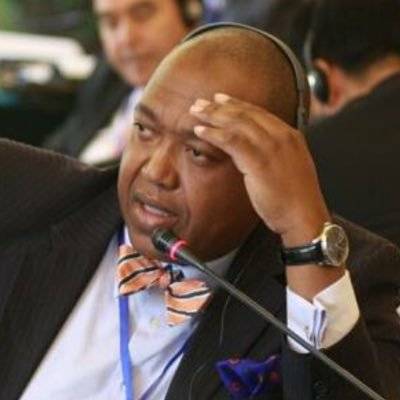The Arabs have been and continue to be polarised on many political issues involving the future of the region. During the first Gulf War in 1990, the Palestine Liberation Organisation (PLO) took a political gamble when it went against the political consensus of the Arab League by supporting the invasion of Kuwait by Iraq. This led to the expulsion of over 400,000 Palestinian refugees from Kuwait.
When the Arab Spring ensued in 2011, Qatar was at the forefront in displaying its support for the revolutions, amidst some regional scepticism. Saudi Arabia had a different point of view regarding the toppling of “dictators”, offering political asylum to the former President of Tunisia, Zine El Abedine Ben Ali and his family, as well as former President of Yemen, the late Ali Abdullah Saleh, after they were both forcibly removed from power. Such is the polarised political positioning on major issues in the Arab world.
However, the Arabs have, by and large, been in agreement on one particular issue: the legitimate right of the Palestinians to resist the occupation of their land by the state of Israel. Although they differ on what form that resistance should take, there is an overwhelming consensus on the right to resist.
Over the years, various countries and political groups in the region have exploited the consensus on Palestine. Indeed, there has been a lot of political opportunism in this respect, in which the Arab League, a political umbrella body representing the Arab states, has been at the forefront. The Palestinian resistance is arguably the only political process that has kept the Arab League relevant over the years. It has given the organisation a lifeline and guaranteed its presence at most international political gatherings. Palestine has also afforded important photo-opportunities for its secretaries-general, most of whom have been Egyptians.
The Arab League is based in Cairo, and Egypt has also benefited immensely from the Palestinian resistance. Its involvement in the issue — often acting as a mediator between Hamas and Fatah — has ensured the Egyptian government a significant place in global politics.
Saudi’s Crown Prince Bin Salman to Palestinians: Accept US deal or ‘shut up’
Similarly, Jordan has also managed to retain its global political relevance because of the Palestinian resistance and cause. Under the late King Hussein, Jordan’s prominence and media coverage often competed with that of Egypt on matters involving Palestine.
Moreover the emergence of the Boycott, Divestment and Sanctions (BDS) campaign owes its existence to the Palestinian resistance. BDS is an international solidarity movement which coordinates Palestine solidarity efforts against Israel around the world.
The Palestinian resistance has also provided an opportunity for ordinary Arabs to vent their political grievances. It is only under the banner of the Palestinian resistance in solidarity protests that most people in the Arab world can congregate and demonstrate freely, whereby some of their other political concerns may catch the attention of the media.
The flip side is that the Palestinian resistance has also managed to expose the political mentality and machinations of the region to the world. It has presented the Middle East as a region that “lacks in political maturity and leadership, a region that is not in sync with the global political rhythm.” This has given carte blanche to unscrupulous political interventions and precipitated the invasion of Iraq, for example, as well as other ongoing political and military incursions in the region. Furthermore, the interconnectedness of race and religion in the Palestinian resistance has unwittingly exported religious tensions to other parts of the world.
The election of Donald Trump in the US and the rapid rise of Crown Prince Mohammad Bin Salman in Saudi Arabia have both had a huge impact on the resistance. Trump has relegated the so-called peace process to the political periphery, with a consequential shift in media focus. That in turn has rendered irrelevant the Arab League, Jordan, Egypt and others more or less dependent on the Palestinians and their cause, including the resistance.
Read: Palestinian anger over Bahrain-UAE delegation participation in Israel-sponsored race
The rise of Bin Salman and the endorsement he received from Trump’s new administration as the “go to man” in the Middle East has made the situation even worse. His comments on the future of Palestine and, indeed, the Middle East as a whole now dominate regional political trajectories. His connection with Israel, which many regard as central to his international relations, has further alienated the traditional political actors and benefactors of the Palestinian resistance in the region. Haaretz, one of most influential Israeli newspapers, reported that he told Jewish leaders in America that, in effect, the Palestinians must make peace with Israel “or shut up”. This is a significant about-turn in the regional politics related to the Palestinian resistance, and it has angered many Arabs, not least the Palestinians, placing many at a loss over what comes next.
The report about Bin Salman comes hot on the heels of the US President’s decision to recognise Jerusalem as the capital of Israel and to move the US embassy from Tel Aviv to Jerusalem. The Saudi Crown Prince has maintained an openly close relationship with Jared Kushner, Trump’s son-in-law and special advisor on Middle East affairs, including the Palestine-Israel peace process. The decades-old regional consensus on Palestine and the Palestinian resistance has thus been dealt a serious blow. Where it will lead is anyone’s guess.
Israel minister: Saudi Arabia to allow our airlines to use airspace soon
The views expressed in this article belong to the author and do not necessarily reflect the editorial policy of Middle East Monitor.


![Crown Prince of Saudi Arabia Mohammed bin Salman Al Saud (2nd R) in Washington, United States on 23 March 2018 [Bandar Algaloud/Saudi Kingdom Council/Anadolu Agency]](https://i0.wp.com/www.middleeastmonitor.com/wp-content/uploads/2018/03/Crown-Prince-of-Saudi-Arabia-Mohammad-Bin-Salman-in-Washington20180323_2_29404989_31966489.jpg?fit=1200%2C800&ssl=1)









